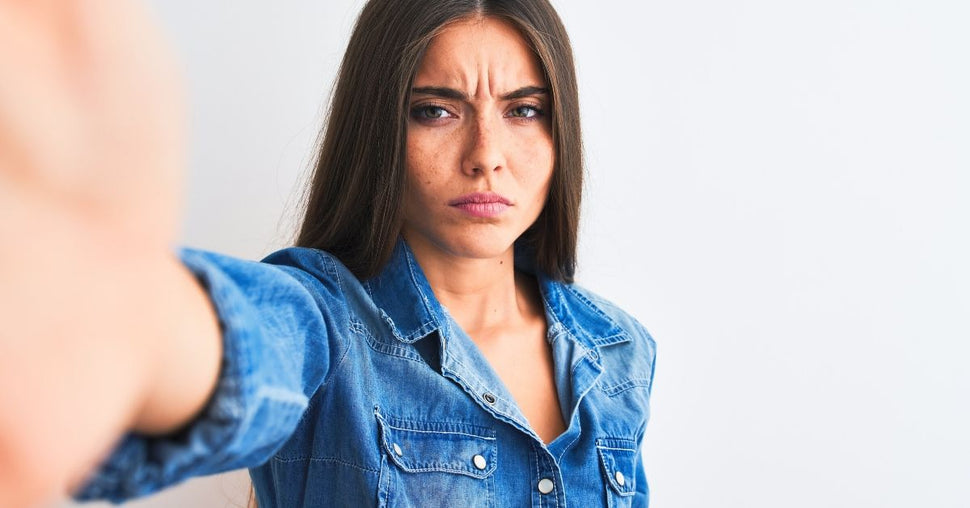Selfies and Self Esteem: What’s The Connect?
01 Feb 2020
When the selfie phenomenon first emerged, the trend seemed fun, yet annoying, but mostly harmless. Since then, we have come to realize that it’s not just some passing trend of pictures shared on social media. Google reported that in a single year, 24 billion selfies were uploaded to its platform and that was back in 2016. With our selfie obsession only growing, experts have raised concerns in recent years about the impacts of this culture. After all, a selfie is both a celebration of the self and an embrace of vanity. This makes it uniquely multidimensional in its impacts on mental health, particularly self-esteem. The relationship between selfie-taking and self-worth and body image can be rather complicated because of various factors that motivate us to take and share selfies, as well as the uniqueness of each individual’s personality. In this article, we talk about the effect of selfie obsessed culture on young people.
It’s Not All Bad: The Benefits of Selfies

We’re all familiar with FOMO (fear of missing out), social isolation, and addictions that are linked to the heavy use of social media platforms. However for some, selfies can be a powerful tool to reaffirm self-worth, build body confidence, and raise your levels of self-esteem. This health benefit of selfies was highlighted in a study published by Chinese researchers , which looked at selfie-posting behavior, feedback on the selfies, and feelings of body satisfaction and self-esteem. From these findings it appears that young women in particular feel more confident and comfortable in their skin when they get accustomed to taking and sharing selfies. This positive effect is also dependent on their social network as positive feedback is important to boosting self-esteem.
Another study conducted at the University of California, Irvine , reached similar conclusions. Selfies were found to have a positive influence, irrespective of whether they were shared on social media sites or not. Interestingly, participants had a stronger mood boost even when they fake smiled for selfies. Researchers believe that taking selfies makes you increasingly comfortable with your body, which leads to overall improvements in mood and self-esteem.
The Dark Side: Narcissistic Personality Disorder, Anxiety, & Worse

An obvious downside of our selfie culture is that it fuels our vanity. Frequently taking and posting selfies may go a bit further, increasing the threat of narcissistic personality disorder. Narcissists typically have a fragile self-image that requires constant attention and admiration – something that is easily fed by posting selfies. Not surprisingly, researchers have found that strong self-promoting content like selfies on social media platforms is often linked to narcissism. More recent studies suggest that selfies don’t just appeal to narcissists but can also trigger or increase narcissism. Researchers found that although high social media use and sharing selfies helps boost confidence it also leads to an increase in narcissistic traits.
Unfortunately, for most young adults and teens the negative impact of selfies can be far more damaging than having an aggrandized sense of self. The risk of anxiety disorders, depression, and negative body image is significantly higher among teens who post selfies onlines. One report found that a large percentage of adolescent girls worry about their appearance in photos posted online, especially being tagged in photos they deem unattractive, and also in selfies that they themselves posted. Just as positive feedback has a role to play in building confidence, self-image and self-esteem tends to suffer when selfies don’t get much attention through likes and comments.
The consequences of body image disorders that are exacerbated by selfie sharing can get even scarier. According to the Boston University School of Medicine’s dermatology department , an increasing number of people are seeking plastic surgery to fix imagined defects in their appearance. This extreme form of body dysmorphic disorder is called ‘selfie dysmorphia’ and it is worsened by the use of photo filters and airbrushing apps that have blurred the lines between fantasy and real beauty.
Surviving Selfies
The next time you reach for your phone to take a selfie or upload one to Instagram or Facebook, hit pause and consider why you’re doing it. Are you posting that selfie just for fun and because you think it’s worth the share or are you doing it because of your insecurity and the need for peer approval? While the dopamine rush that you get from likes may help on occasion, frequently posting selfies creates a vicious cycle where you become dependent on the approval of others to feel good about yourself. If you’re posting selfies to boost your mood and self-esteem, you’d be better off taking a break and pursuing healthier activities like mindfulness meditation.
Skin: Renew - Glutathione - Orange Flavour
- ₹1,996
- ₹1,996
-
₹2,600 - ( 23% OFF)
Categories
- Choosing a selection results in a full page refresh.
- Press the space key then arrow keys to make a selection.
this is the sidecart










